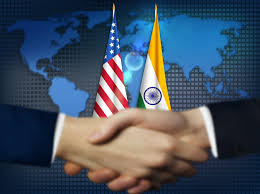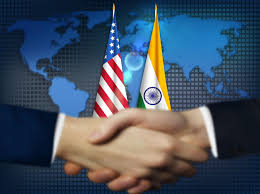
The recent proposal for an India-U.S. trade deal aiming to eliminate tariffs on car imports has sparked extensive discussions across various sectors. This initiative, which could significantly impact the Indian automotive landscape, particularly in facilitating Tesla's entry into the market, warrants a comprehensive examination. By exploring historical precedents, domestic industry concerns, strategic opportunities for Tesla, geopolitical ramifications, and consumer perspectives, we can better understand the multifaceted reactions to this proposal.
Australia's Button Car Plan
In 1985, Australia introduced the Button Car Plan, an initiative designed to consolidate its automotive industry and enhance competitiveness by reducing tariffs. At that time, Australia's motor industry was heavily protected by import tariffs and quotas, supporting local assembly of thirteen models by various manufacturers. The plan aimed to slash the number of locally manufactured models to six by 1992, forcing industry consolidation. This strategy sought to make the motor vehicle industry more efficient through resource consolidation, allowing for a gradual reduction of import tariffs. While the plan led to a more competitive market, it also resulted in the decline of local manufacturing, as companies struggled to compete with imported vehicles. This underscores the delicate balance required when implementing tariff reductions to protect domestic industries while promoting competitiveness.
China's WTO Accession
China's accession to the World Trade Organization (WTO) in 2001 marked a significant shift in its automotive industry. Following its admission, automotive tariffs were substantially reduced, leading to a decrease in the prices of imported cars. This reduction transformed the market, as foreign automotive companies began introducing their latest models into China, providing consumers with access to a wider variety of vehicles at more competitive prices. Consequently, this drove increased demand and competition within the industry, leading to rapid growth and positioning China as a global automotive leader. However, it also posed challenges for domestic manufacturers, who had to innovate and adapt to maintain their market share amidst heightened competition.
Impact on India's Domestic Automotive Industry
Local Manufacturers' Concerns
Indian automakers, including prominent companies like Tata Motors and Mahindra & Mahindra, have expressed apprehensions regarding the proposed tariff eliminations. Their primary concern is that reduced tariffs could make imported vehicles more affordable, potentially undermining domestic production and deterring future investments in local manufacturing. The fear is that without protective tariffs, the market could be flooded with foreign cars, making it challenging for domestic manufacturers to compete, especially in the nascent electric vehicle (EV) sector where substantial investments have been made.
The experiences of Australia and China offer valuable insights. Australia's reduction in tariffs led to increased competition but also resulted in the decline of local manufacturing, as domestic companies struggled to compete with imports. Conversely, China's strategic reduction of tariffs, coupled with policies promoting local innovation, led to a thriving automotive industry that competes globally. These contrasting outcomes highlight the importance of implementing supportive policies alongside tariff reductions to bolster domestic industries.
Strategic Implications for Tesla
The elimination of tariffs could significantly lower the cost of Tesla vehicles in India, making them more competitive in the local market. This price reduction could enhance Tesla's appeal to Indian consumers, particularly in the luxury EV segment. However, Tesla would need to navigate challenges such as establishing a robust charging infrastructure and adapting its vehicles to meet local regulations and consumer preferences.
Aligning with India's 'Make in India' initiative, Tesla might consider establishing local manufacturing facilities. This move could not only provide tax incentives but also mitigate potential backlash from domestic manufacturers concerned about competition. Local production could also allow Tesla to tailor its vehicles to the specific needs of Indian consumers, potentially increasing its market share.
Geopolitical and Economic Ramifications
The proposed tariff eliminations could serve as a catalyst for strengthening India-U.S. trade relations, potentially leading to broader economic collaborations. However, it could also necessitate negotiations to address concerns from domestic industries, ensuring that the benefits of such a deal are mutually advantageous and do not disproportionately favor one side.
Integrating India more deeply into global automotive supply chains could enhance efficiency and innovation. However, it also exposes domestic industries to global market fluctuations and competition. Ensuring that local manufacturers can compete on a level playing field is crucial to prevent potential negative impacts on the domestic economy.
Zero tariffs could lead to a significant reduction in car prices, making premium brands like Tesla more accessible to Indian consumers. This increased affordability could drive higher adoption rates of EVs, aligning with India's environmental goals and reducing reliance on fossil fuels.
The entry of foreign players like Tesla could stimulate competition, prompting domestic manufacturers to innovate and improve the quality of their offerings. This competitive environment could lead to a more dynamic automotive market, benefiting consumers through better products and services.
The proposal to eliminate tariffs on car imports as part of the India-U.S. trade deal presents a complex scenario with far-reaching implications. While it offers opportunities for global players like Tesla to enter and thrive in the Indian market, it also poses challenges for domestic manufacturers who fear being outcompeted. Drawing lessons from international precedents, it is essential for policymakers to strike a balance that fosters innovation and competition while safeguarding the interests of local industries. By implementing supportive measures alongside tariff reductions, India can navigate this transition effectively, ensuring that the benefits of globalization are equitably distributed across all stakeholders.
(Source:www.business-today.in)
Australia's Button Car Plan
In 1985, Australia introduced the Button Car Plan, an initiative designed to consolidate its automotive industry and enhance competitiveness by reducing tariffs. At that time, Australia's motor industry was heavily protected by import tariffs and quotas, supporting local assembly of thirteen models by various manufacturers. The plan aimed to slash the number of locally manufactured models to six by 1992, forcing industry consolidation. This strategy sought to make the motor vehicle industry more efficient through resource consolidation, allowing for a gradual reduction of import tariffs. While the plan led to a more competitive market, it also resulted in the decline of local manufacturing, as companies struggled to compete with imported vehicles. This underscores the delicate balance required when implementing tariff reductions to protect domestic industries while promoting competitiveness.
China's WTO Accession
China's accession to the World Trade Organization (WTO) in 2001 marked a significant shift in its automotive industry. Following its admission, automotive tariffs were substantially reduced, leading to a decrease in the prices of imported cars. This reduction transformed the market, as foreign automotive companies began introducing their latest models into China, providing consumers with access to a wider variety of vehicles at more competitive prices. Consequently, this drove increased demand and competition within the industry, leading to rapid growth and positioning China as a global automotive leader. However, it also posed challenges for domestic manufacturers, who had to innovate and adapt to maintain their market share amidst heightened competition.
Impact on India's Domestic Automotive Industry
Local Manufacturers' Concerns
Indian automakers, including prominent companies like Tata Motors and Mahindra & Mahindra, have expressed apprehensions regarding the proposed tariff eliminations. Their primary concern is that reduced tariffs could make imported vehicles more affordable, potentially undermining domestic production and deterring future investments in local manufacturing. The fear is that without protective tariffs, the market could be flooded with foreign cars, making it challenging for domestic manufacturers to compete, especially in the nascent electric vehicle (EV) sector where substantial investments have been made.
The experiences of Australia and China offer valuable insights. Australia's reduction in tariffs led to increased competition but also resulted in the decline of local manufacturing, as domestic companies struggled to compete with imports. Conversely, China's strategic reduction of tariffs, coupled with policies promoting local innovation, led to a thriving automotive industry that competes globally. These contrasting outcomes highlight the importance of implementing supportive policies alongside tariff reductions to bolster domestic industries.
Strategic Implications for Tesla
The elimination of tariffs could significantly lower the cost of Tesla vehicles in India, making them more competitive in the local market. This price reduction could enhance Tesla's appeal to Indian consumers, particularly in the luxury EV segment. However, Tesla would need to navigate challenges such as establishing a robust charging infrastructure and adapting its vehicles to meet local regulations and consumer preferences.
Aligning with India's 'Make in India' initiative, Tesla might consider establishing local manufacturing facilities. This move could not only provide tax incentives but also mitigate potential backlash from domestic manufacturers concerned about competition. Local production could also allow Tesla to tailor its vehicles to the specific needs of Indian consumers, potentially increasing its market share.
Geopolitical and Economic Ramifications
The proposed tariff eliminations could serve as a catalyst for strengthening India-U.S. trade relations, potentially leading to broader economic collaborations. However, it could also necessitate negotiations to address concerns from domestic industries, ensuring that the benefits of such a deal are mutually advantageous and do not disproportionately favor one side.
Integrating India more deeply into global automotive supply chains could enhance efficiency and innovation. However, it also exposes domestic industries to global market fluctuations and competition. Ensuring that local manufacturers can compete on a level playing field is crucial to prevent potential negative impacts on the domestic economy.
Zero tariffs could lead to a significant reduction in car prices, making premium brands like Tesla more accessible to Indian consumers. This increased affordability could drive higher adoption rates of EVs, aligning with India's environmental goals and reducing reliance on fossil fuels.
The entry of foreign players like Tesla could stimulate competition, prompting domestic manufacturers to innovate and improve the quality of their offerings. This competitive environment could lead to a more dynamic automotive market, benefiting consumers through better products and services.
The proposal to eliminate tariffs on car imports as part of the India-U.S. trade deal presents a complex scenario with far-reaching implications. While it offers opportunities for global players like Tesla to enter and thrive in the Indian market, it also poses challenges for domestic manufacturers who fear being outcompeted. Drawing lessons from international precedents, it is essential for policymakers to strike a balance that fosters innovation and competition while safeguarding the interests of local industries. By implementing supportive measures alongside tariff reductions, India can navigate this transition effectively, ensuring that the benefits of globalization are equitably distributed across all stakeholders.
(Source:www.business-today.in)














